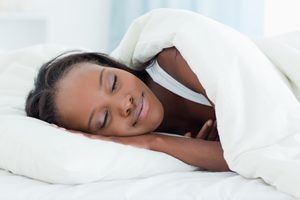
If you're one of the millions of people in the United States who suffers from allergic rhinitis, you know how difficult it can be to perform necessary daily tasks when you're constantly having to deal with irritating symptoms like sneezing, postnasal drip and itchy eyes. Even something as simple as falling asleep can be a real challenge when you have to blow your nose regularly in order to breathe.
Researchers are well aware of the connection between nasal congestion and lack of sleep, which is why they recently conducted a study to test whether a certain two-drug nasal spray would have an effect on sleep patterns in allergy patients.
"In a randomized, placebo-controlled, double-blind trial, the combination of azelastine hydrochloride and fluticasone propionate (Dymista) significantly improved all individual nasal symptoms," states MedPage Today. "At the same time, the spray significantly improved all aspects of quality of life, including better sleep."
As Dr. Lyndon Mansfield of the Texas-based Allergy Partners said in an interview with the news outlet, "If you improve the nasal congestion […] then people sleep better."
This is great news for allergy sufferers who spend a good portion of their nights tossing and turning. And in addition to using nasal sprays, there are other steps people can take to ensure that they sleep well at night, such as investing in hypoallergenic mattresses, sheets and pillow cases. These specially designed items work by shielding people from common household allergens that can build up on their bedding over time. Check out the Allergy Be Gone website today to learn more.









